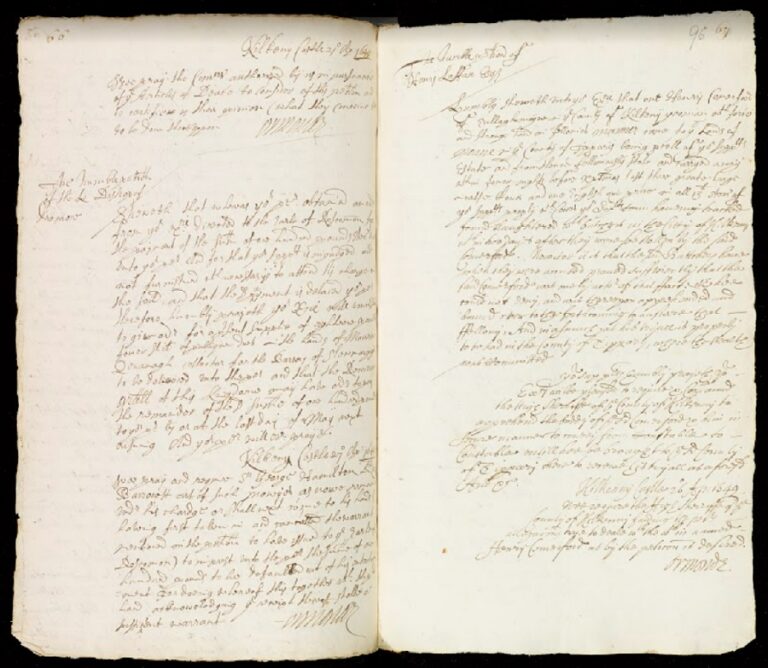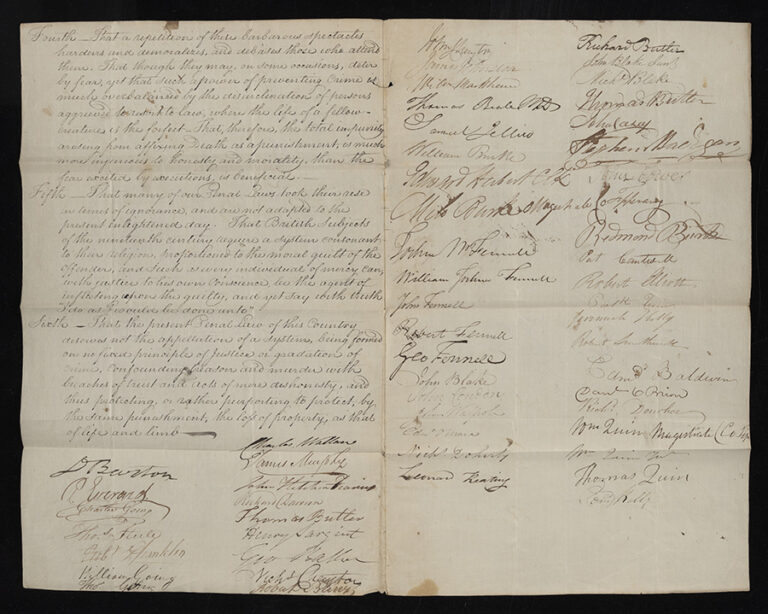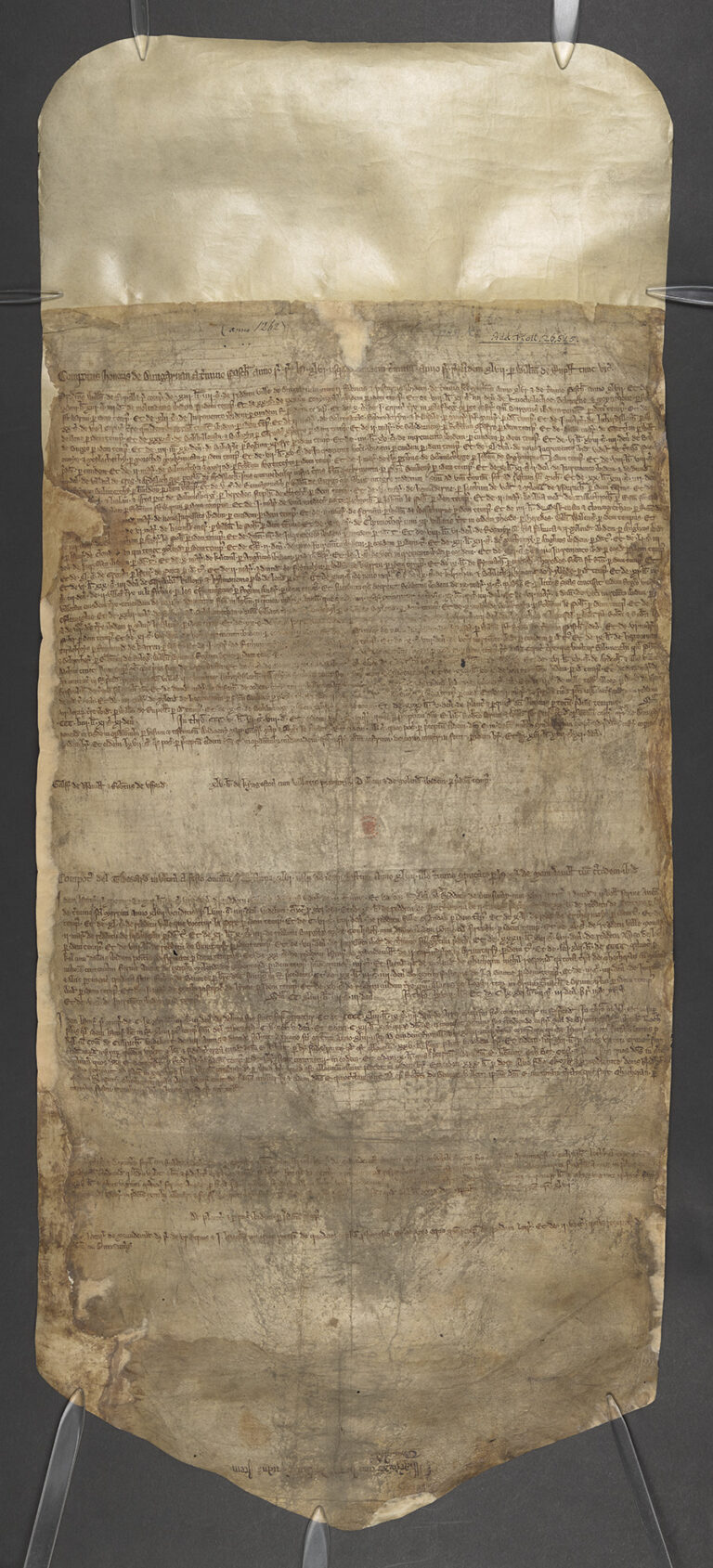When the Public Record Office of Ireland (PROI) was destroyed, many mourned the future of Irish historical research. How could you do research without any records? As it turns out, once you start looking for material, Irish records are everywhere.
The Archival Discovery team of Ireland’s Virtual Record Treasury was not the first to begin the search for Irish records. In the century since its destruction, surveys of available material have been conducted, and the records of particular repositories have become well-known within the scholarly community. But we always knew there was so much more out there than anyone had found, or collated into one place.
When I began as an Archival Discovery Research Fellow at The National Archives back in early 2020, the plan had been to investigate the plentiful Irish material of The National Archives in person. There were the well-known collections from the Home Office and Signet Office, as well as copious records and letters from across the years in the State Papers series. But there were other collections to explore as well. A preliminary search of The National Archives’ catalogues revealed Irish material from the early modern period in the tens of thousands across 59 fonds. Among others, Chancery, Probate and Customs were all likely to contain Irish material and literally looking through the boxes was certain to bring to light records we hadn’t previously known about.
And then COVID-19 happened.
Plans to rummage deep into the many thousands, and possibly hundreds of thousands, of Irish records in The National Archives were put on hold. Instead, research turned online and expanded beyond The National Archives’ collections to include other core repositories known to, and suspected of, holding Irish material. The result was not simply a longer list of Irish material, but a broader and richer list of material that reflected the range of topics and items once held in the PROI.
In some cases, the finds highlighted aspects of the PROI’s collection practices. One example was the Carte Papers, a collection of items mainly related to 17th century Irish and English history, accrued by Thomas Carte (1686-1754) and left to the Bodleian Library in Oxford. The Papers themselves are mostly original documents, the vast majority of which belonged to James Butler (1610-1688), 1st Duke of Ormond and Lord Lieutenant of Ireland. Although concerned with the workings of Irish government, as private papers they remained in private ownership and therefore never made it in to the PROI. Their existence was, however, known to the Record Office and Herbert Wood in his Guide notes that a project was begun to create duplicate copies of the relevant volumes. In total, 41 volumes were copied and housed in the PROI before the project was suspended.

Collectors and Collections became a common theme in exploring material at other major repositories. At the University of Cambridge, the collection of former University Librarian Henry Bradshaw (1831-1886) provided a large number of Irish petitions from the early 19th century. The topics reflect the issues and concerns of the time and cover everything from voices from both sides of the Catholic emancipation debate to a petition against the slave trade, the repeal of the window tax, and the abolition of the death penalty. The documents give a real sense of the individual lives and beliefs of Ireland’s citizens at the time and although the signatures can be difficult to read, they are tangible links to the past.

At the British Library, collectors and collections have been extremely influential in the repository’s acquisition of material and this has led to one of the richest and broadest collections of Irish-related material in the UK. From an extract of a 13th century Irish pipe roll, to a 1799 census in Tipperary, and almost everything in between, the collections of the British Library are rich in material that complements and replaces that which has been lost. Like the Carte Papers, the British Library (or British Museum as it was then referred to), was listed by Herbert Wood as one that contained much Irish material.

So while I didn’t get to spend the last two years rifling through papers at The National Archives, I did get to explore the richness of Irish material available in some of the largest repositories of the UK. A selection of the items ‘found’ over the last two years has been digitised and is available through the Virtual Record Treasury, with more being added every day.
Just as the search has been ongoing since the destruction of the PROI 100 years ago, so it continues.
congratulations on your splendid efforts to restore and preserve Irish history. Indeed it is a noble cause.
Excellent, look forward to what ever comes!
Thank you and everyone, for the wonderful work of the National Archives!
Kindest Regards
Linda A Mountney.
I’m looking for Irish ancestry how do I look this up
This is a wonderful initiative and very helpful to us of the Irish Diaspora trying to make sense of the scattered and damaged documents…Thank you
I’m Just about to start my long put off Irish ancestry. I think now is an excellent time to research, learn and discover.
Thank you so much for all your efforts. a dream job
You mention a 1799 census of Tipperary – I can’t find this on either the British Library or the National Archives website – is it available?
Hi Yvonne
If you are just starting I would recommend the book “My Ancestor was Irish”, available from the National Archives bookshop. Only £8.99 and a mine of information.